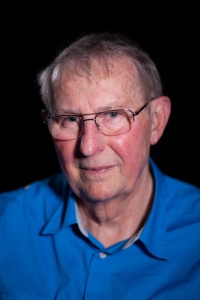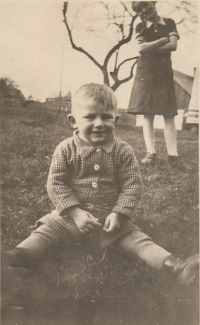Expelled from the Sudety, unwelcome in Germany

Download image
Günther Klemm was born on 5 November 1939 in Teplice–Šanov. He last saw his father Hans, a trained cooper, at age two, when he was enlisted into the Wehrmacht. The last letter the family received from him was from Stalingrad. Günther Klemm lived as a single child with his mother, Gerta Klemm, in the village of Klein Augezd (previously Malý Újezd, now Újezdeček) near Teplice, but often spent time with his grandparents in Bohemian Switzerland, in Rynartice. His mother worked in agriculture with their Czech friends. From his childhood he remembers the friendly atmosphere of Czech–German coexistence, as well as the fact that he was the only German child in school after the war (all the other families had either left or were expelled), being bullied by both his Czech teacher and priest. On 20 July 1946 the Klemm family was relocated. The nine-member Klemm family was placed with farmers in the Altmark region near Magdeburg. They lived in poverty conditions for three years, until Günther’s mother was found by her sister through the Red Cross, and she invited her and her son to live with her in the small village of Börde. His mother began working in farming, Günther went to school and initially they had to live in the unused smokehouse. Later, thanks to his teacher, they found better living quarters and their situation generally improved. Günther Klemm studied mechanical locksmithing and later constructed aeroplanes. He settled with his family in Dresden. He was a member of the SED Communist Party, initially working in the army and later as an HR manager or manager of a textile plant. He regularly returns to the place of his birth and took part in a Rynartice pilgrimage. He wrote a book about his memories of the expulsion: Search for a Healthy World with the subtitle Expelled from the Sudety, unwelcome in Germany. His wish is that nobody ever has to experience what he and his family did.


